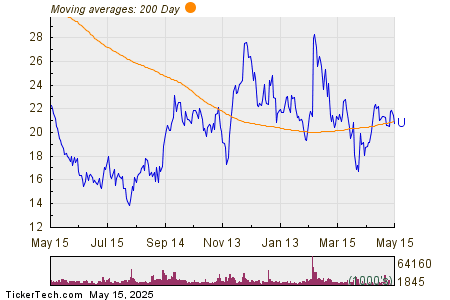U.S.-China Trade Agreement Boosts Market Confidence for Investors
The U.S. and China have delivered encouraging news to investors by easing escalating trade tensions. They have reduced import tariffs from previously high levels to more manageable ones. Since import tariffs are borne by the importer, excessively high rates can harm consumers and businesses that rely on foreign products. This concern has weighed heavily on investors and affected the Stock market in recent weeks.
Following the announcement of an initial agreement meant to last for 90 days while a final deal is negotiated, the three major indexes surged. Notably, the Nasdaq Composite experienced the largest gain as investors welcomed a more favorable environment for technology companies—key players that depend heavily on imports and often thrive during strong economic conditions.
Details of the U.S.-China Trade Agreement
Here’s a brief overview of the agreement terms. Initially, both nations had imposed tariffs exceeding 100% on each other. However, they have since settled on a 10% tariff level. Additionally, the U.S. introduced a 20% tariff related to President Donald Trump’s plan against countries involved in the flow of harmful drugs into the U.S. Consequently, China now faces an import tariff of 30%, a significant decrease from the over 50% rate that some analysts anticipated.
This agreement will remain in place for 90 days while further discussions continue.
Impacts on Key Industries and Apple
The positive news extends across the tech sector and beyond, affecting a wide range of products sourced from China. One particular company that stands to benefit greatly is Apple (NASDAQ: AAPL). The tech giant, known for its iPhones and other devices like Macs and iPads, relies heavily on international manufacturing, with China being central to this supply chain.
Remarkably, 90% of all iPhones are produced in China, with the iPhone representing about half of Apple’s net sales in the last quarter. The prospect of steep tariffs on Chinese imports posed significant risks to Apple. In their latest earnings call, the company revealed plans to shift some U.S. iPhone production to India and Vietnam.
Lessening Earnings Risks for Apple
With the U.S.-China agreement in place, it’s uncertain whether Apple will proceed with those production shifts. Nonetheless, the new tariff rates significantly reduce the risks to earnings, positively impacting investor sentiment. The company’s stock jumped more than 7% in the trading session following the announcement.
Lower tariffs mean Apple can avoid an urgent need to overhaul its entire supply chain to mitigate earnings impact. So far, electronics have not been subjected to tariffs, which has minimized immediate consequences for Apple. However, President Trump has indicated plans to introduce tariffs specifically for electronic goods.
Given the previous exemption for electronics, there’s reason for optimism regarding a manageable tariff rate for these products.
This news is advantageous for Apple, reducing the tariff pressure on its earnings and presenting an opportunity for investors interested in this tech giant, especially at the current pricing. Apple shares are now trading at 29 times forward earnings estimates, down from over 35 times a few months ago.
Hence, I anticipate that Apple will emerge as the biggest winner from the U.S.-China tariff agreement, in terms of both earnings and share performance.
Investing Considerations for Apple
Before considering an investment in Stock in Apple, it’s important to reflect on the following:
The Motley Fool Stock Advisor analyst team has identified what they believe to be the 10 best stocks for investors to buy right now, and Apple is not on that list. The selected stocks could yield substantial returns in the coming years.
For instance, consider when Netflix appeared on this list on December 17, 2004… an initial $1,000 investment would have grown to $613,951!* Or when Nvidia made the list on April 15, 2005… that same investment would now be worth $796,353!*
It’s worth noting that the Stock Advisor boasts a total average return of 948%, significantly outperforming the 170% average of the S&P 500. Don’t miss out on their latest top ten list, available with your subscription to Stock Advisor.
*Stock Advisor returns as of May 12, 2025
Adria Cimino does not own shares in any of the stocks mentioned. The Motley Fool owns shares in and recommends Apple. The Motley Fool has a disclosure policy.
The views and opinions expressed herein are solely those of the author and do not necessarily reflect the views of Nasdaq, Inc.





